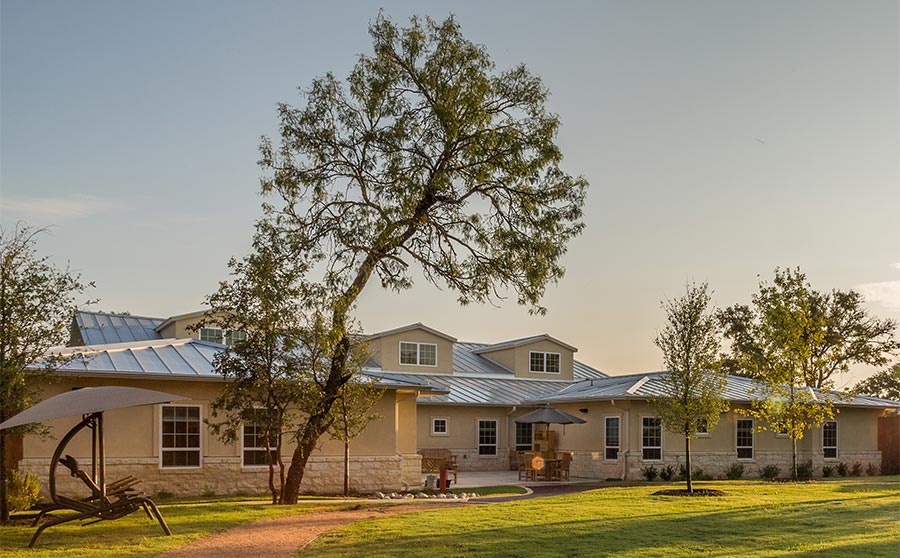How To Move A Parent Into A Memory Care Facility

It’s one thing to recognize your parent needs full-time memory care. It’s quite another to talk to your parent about this and move him or her into a memory care facility.
The decision to move your parent into memory care and the process it takes to get him there takes time, and while it can be difficult to make this move and especially difficult to talk to your parent about it, rest assured you’re not alone.
Today, about 800,000 Americans reside in some type of assisted living facility. Forty-two percent of those have dementia or Alzheimer’s disease. What you’re going through is certainly unique to you, but many others have gone through a similar transition.
Moving a parent into memory care requires a multi-step process. While this varies depending on your parent’s needs, family members, finances and other factors, here is a basic guideline to get you started as you think about making this transition.
How To Move A Parent Into A Memory Care Facility
1. Have a conversation with your other family members first.

Don’t talk to your parent about moving him or her into memory care until the entire family is on board. If you have siblings, aunts or uncles who are present in your mother or father’s life, meet together as a family to discuss your thoughts. If you’re on different pages as far as what your parent needs, this will just further confuse your parent and cause tension within your family. It’s best to work out your differences before approaching your mother or father.
2. Determine what level of care is needed.

While you’re in conversation with your family, work with a doctor or professional to determine what level of care your parent needs.
There are several signs that your parent needs memory care specifically:
- Changes in behavior
- Disorientation and confusion
- Needing reminders or assistance with daily living skills
- Declining health
- Caregiver anxiety and stress
- An Alzheimer’s or dementia diagnosis
Memory care facilities are different from nursing homes and assisted living facilities. They cater to those with memory loss issues in a way standard assisted living communities do not.
Once you’ve determined what level of care your loved one needs, you can begin looking at local memory care facilities.
3. Tour memory care facilities.

Determine who in your family wants to have a say in selecting potential facilities where your parent could live. Then, schedule tours of memory care facilities in your area. You don’t have to select which one your parent will live in. Narrow it down to a few options you can present when you have a conversation with your parent.
All memory care facilities should offer in-person tours. If COVID protocols are still in place, they should offer virtual tours. Meet with the staff, look into a room, and observe as much as you can. You want to make sure you have safe and comfortable options for your mom or dad.
If you’re having trouble navigating the world of memory care, you could consider hiring a senior care advisor, someone who can guide you through the process of finding the best possible solution for your parent.
4. Determine the cost for memory care facilities near me and who’s paying.

Cost of memory care is also a good conversation to have with your family members before talking to your parent about memory care.
Determine the price range you’re willing to pay for memory care and how it will be paid. Keep in mind that assisted living facilities are not covered by Medicare or Medicaid payments. Once your budget and payment arrangements are decided, your parent doesn’t have to worry about it when you first bring up the conversation. You can tell them you already have a plan in place.
The cost of memory care facilities varies, but the median price for a private room at a memory care facility is about $8,000 per month.
5. Have the conversation with your parent about memory care.

This is an important step in the process of moving a parent into memory care: talking to them about it. Before you can start making this transition, your parent should at least be familiar with the idea and process. However, many people with the disease don’t think they need a facility or understand how unsafe they are in their current living environment. For those families, it is more difficult to involve their loved ones in the decision.
First, decide who will be part of the conversation. It may be best to have this conversation one-on-one if you have been your parent’s primary caregiver. Or you may want to involve your siblings or family members who are close to your mother or father.
Practice what you’ll say. This might sound contrived but in difficult conversations like this, writing down what you will say beforehand will keep you from providing too much information that will overwhelm your mom or dad or from saying things that may alarm him or her. If others will be joining you in the conversation, make sure you’re all sticking to the same “script.”
In your script, focus on the benefits of memory care: that a facility like this will help keep your mom or dad safe, will provide medical care and nutrition, as well as a more social environment. Keep your language simple and repeat the same phrases in your script.
If you know your parent is resistant to the idea of memory care, we recommend you consider involving your parent’s doctor or neurologist who can back you up with medical advice and expertise.
6. Prepare for the move.

Once the decision has been made to transition your parent into memory care and they understand the need for this move, establish another script you and your family members can repeat as the moving process begins.
Your parent may be confused as to why you’re packing up boxes with their belongings. They may forget you’ve decided to make this transition. Continue to repeat the same language to them about where they are going and why. Stick to the same script to prevent further confusion.
When it comes to packing, decide what will go with your parent and what won’t. You can donate leftover items and keep the more valuable or sentimental items for family members.
Make sure to pack photos and memorabilia that are important to your mom or dad.
Organize any important documents for safekeeping, such as:
- Bank account information
- Tax returns
- Pension documents
- Deeds to all owned properties
- Titles to all vehicles
- Records of loans and debts
- Power of attorney
- Personal medical history
- Living will
- Insurance ID cards
7. Personalize their space.

Come move-in day, be sure to spend time personalizing your parent’s room. Hang photos, place books on the bedside table, and hang their favorite clothes in the closet.
You could even decorate with throw pillows and blankets—whatever will make your loved one feel more at home. This is especially important for memory care residents because items like these help them stay oriented and remember which room is theirs.
8. Make a visiting plan.

Before you leave your mom or dad, ensure them that you will be back to visit.
Make a plan for how often you will visit and when. For memory care, morning or daytime visits are recommended to avoid sundown syndrome (increased confusion in the later afternoon and evening hours).
9. Get the help you need.

Moving your parent into a memory care facility is emotionally difficult and physically taxing.
Make sure you are also getting the care you need as you ensure the same for your mom or dad. Counseling and support groups are especially helpful during a time like this.
While memory care is often the best and safest solution for your parent, the process of getting them there is just that—a process.
If you have any questions about how we advise handling this process at Barton House Memory Care, please reach out to us by contacting us here. Our hope is that you and your parent have the support you need during this important transition.





